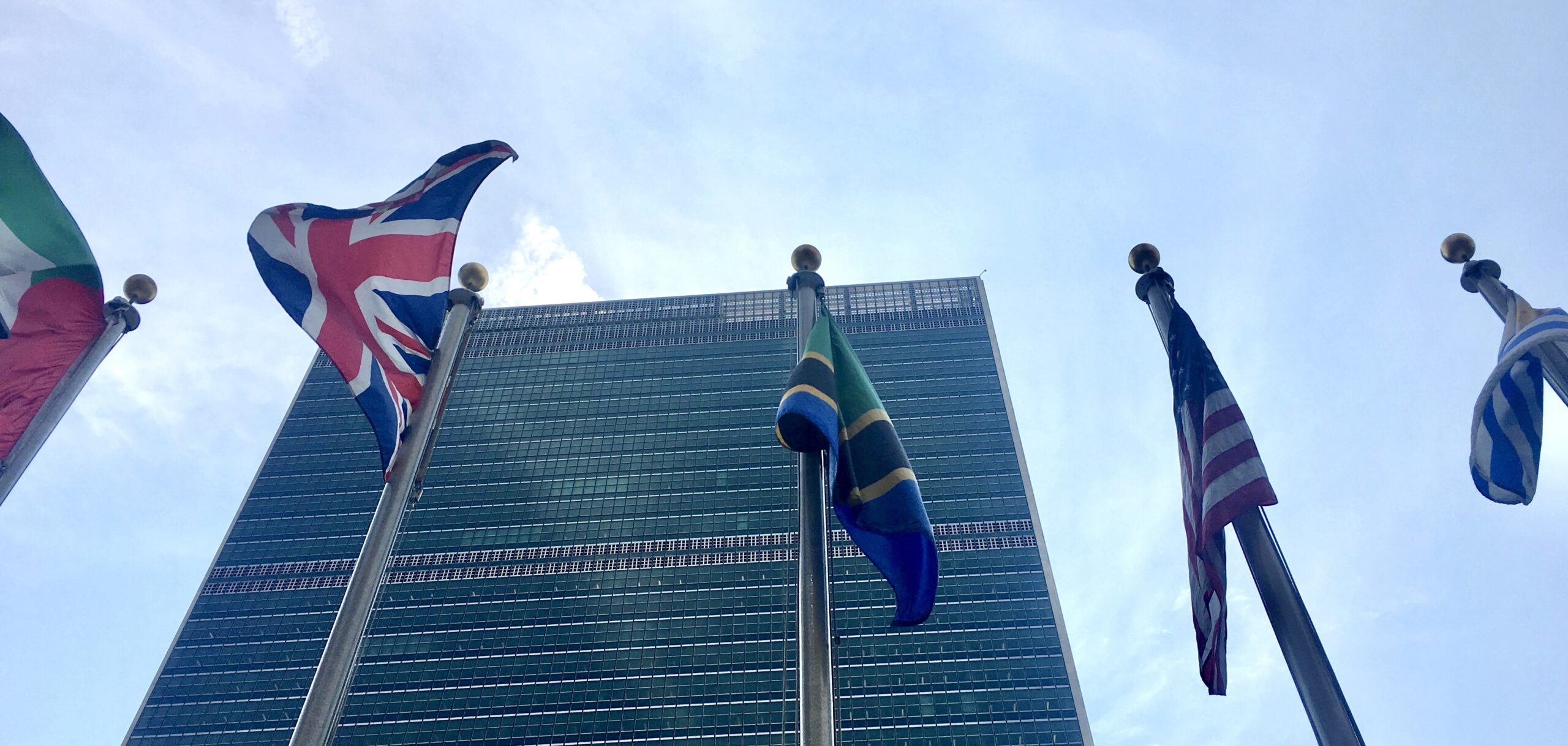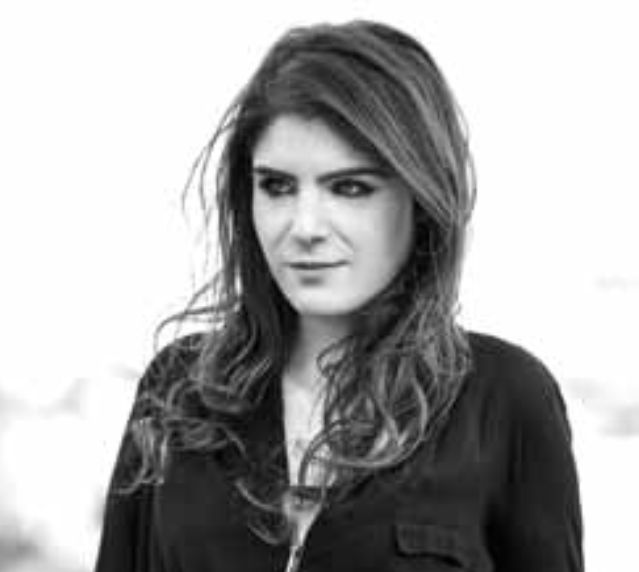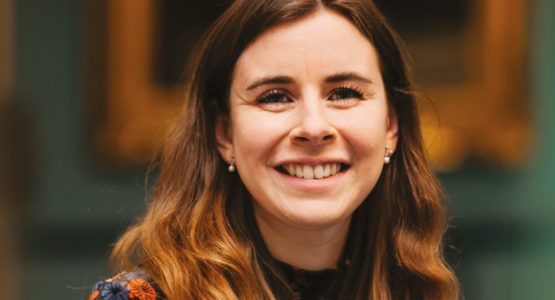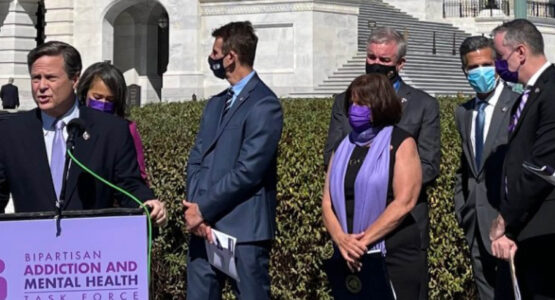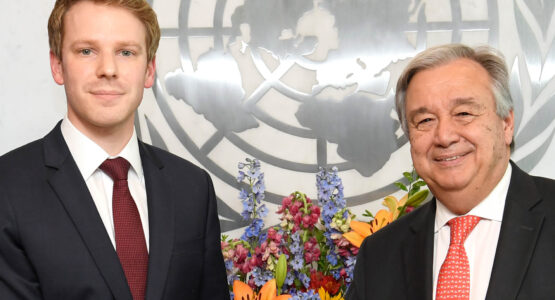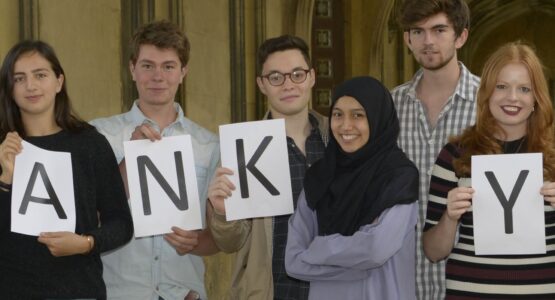Johnian magazine issue 53, autumn 2024
Alexandra Abrams: since St John’s
Alexandra Abrams (2009) studied Theology and Religious Studies at St John’s and has a Master’s degree in Literature and the Arts from the University of Oxford. She is an independent impact and leadership strategist and film producer, working with thought-leaders, talent, production houses, policy makers and international NGOs. Here she tells us about her career path and the role collaboration plays in her work.
My world since St John’s has been shaped by breaking boundaries, merging industries and, some may say, making up careers. Going against the norm has always defined my choices, and so much of that is shaped by finding common ground between often contrasting worlds and using those similarities to unite them.
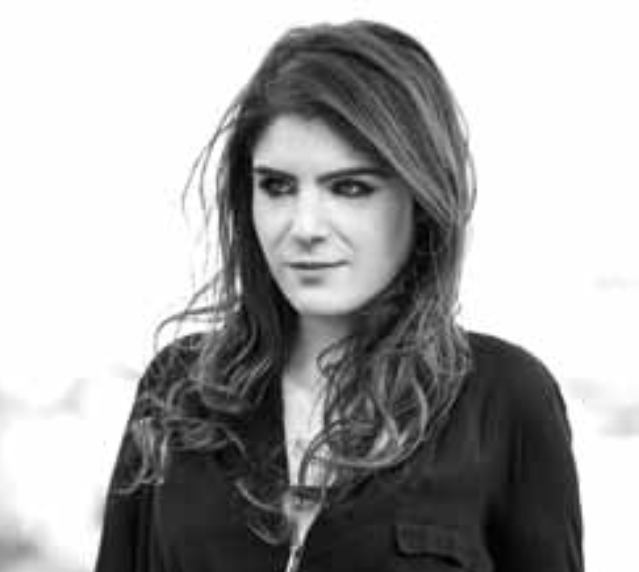
Collaboration is one of the most beneficial aspects of any project and is, more often than not, propelled by a mutual goal. It is something greater than the sum of its parts, humbling those in its pursuit. There is such strength to be found by learning from others, putting great minds together and watching them work not only to share ideas, but to learn from each other too. It inspires people to shake off their differences and find common ground, instilling an openness that may otherwise not be there.
What propels me is the desire to do good, directing my work and partnerships via the ability to make an impact. I have never sought to follow a path defined by strict rules or formulae, and philanthropic endeavour has become the hallmark of anything I put my name to and a mutual focus of everyone I work with. By definition, it belies a passion in these parties and their ambition to make something more of themselves and their work. It indicates an openness to sharing ideas and to learning and, by necessity, the ability to collaborate.
My time at Cambridge was shaped by this desire to break boundaries through mutual understanding. I read Theology and Religious Studies, a subject that drew me in due to the multifaceted nature of both the course itself and the theories it taught. The construct of G-d, or a deity, is the greatest lens through which to understand a culture, its beliefs and its structure. It indicates why people think the way they do and how to engage with them. The course led me to recognise the unity between religions and draw out commonalities, showing me that, despite differences on the surface, there is much in common that can unify them. It also demonstrated how, when led by this understanding, some of the most divisive facets in the world can actually be different ways of saying the same thing.
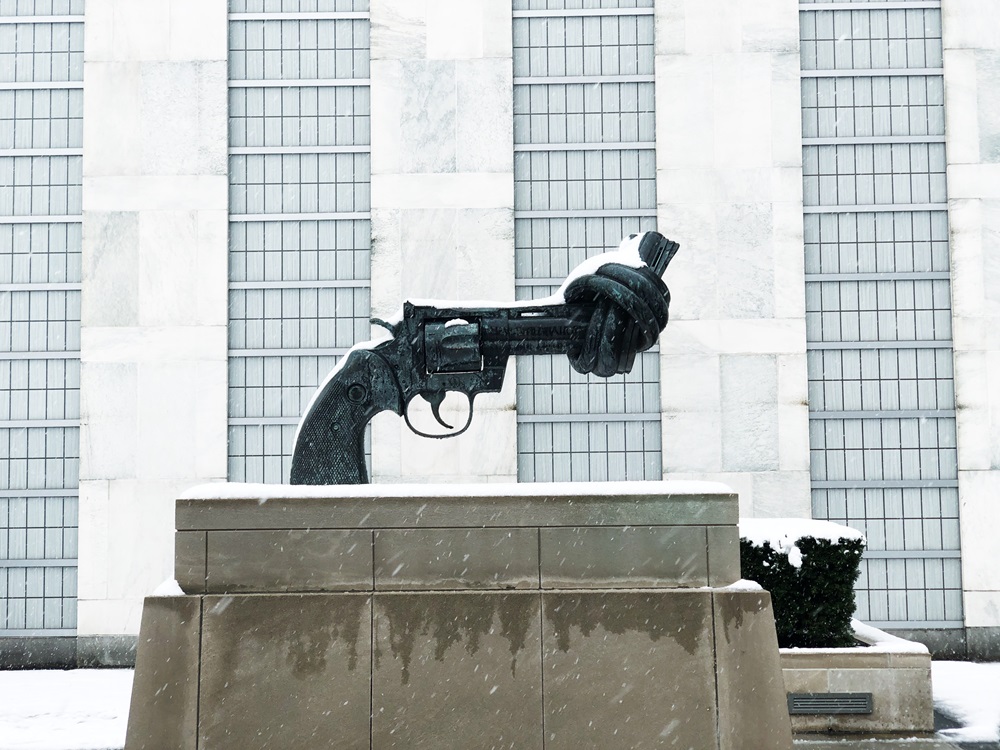
Finding common ground through differences was something I had experienced before my time at Cambridge, from working with the World Council of Peoples for the United Nations since the summer before I matriculated. An organisation formed in the 1940s, it is dedicated to using art and culture to facilitate the goals of the UN, encapsulating a dynamism that is both necessary and exciting. Its very essence – combining artistry with the pursuit of social good – is a manifestation of collaboration, using different skills and creativity to educate through feeling. Moreover, the use of art is in itself significant as it can be universally understood and is, at its very core, a language that transcends boundaries to unite and inspire.
The World Council instilled in me the importance of cross-industry perspectives, working with people in parallel fields, pooling knowledge, talents and networks to make a difference in the world. My time spent both in the United Nations Headquarters in New York and outside in the Dag Hammarskjold Plaza (the ‘Gateway to the United Nations’ and the real melting pot) was a fascinating insight into the way different backgrounds converge and the restrictions that prevent them doing so. I still see diverse individuals mingling, learning from each other and working together, but also how this mixing can reaffirm social differences in a situation dedicated to breaking them down. My studies at Cambridge were immensely useful in navigating the latter, allowing me to sensitively and productively work around those boundaries. The combination of real-world experience and theoretical study gave me first-hand appreciation for the importance of cross-cultural understanding and partnerships.
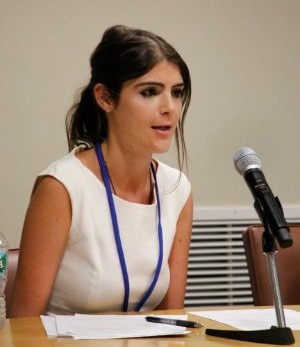
My thirst for impact led to the foundation of The Society of Young Philanthropists. Building on a familial legacy of philanthropic-entrepreneurialism (my great grandmother opened one of the first charity shops in the UK), I set out to reinvigorate charitable giving among young professionals, working across industries to do so. I built upon the connections I had made through countless summers interning at Condé Nast and merged them with my work at the UN in a way I hadn’t previously experienced. The combination of fashion, luxury and philanthropy was not what it is today, and I was met with intrigue. But The Society highlighted the power of working across industries, countries and cultural definitions to create change.
The importance of collaboration cannot be underestimated, and it has become the central tenet of my career to date. When I was asked to help build a film festival dedicated to changing the narrative around climate change (founded by fellow Johnian Colin Burrows (1978)) my excitement to foster collaboration overcame any doubts that may have held me back. And I am so glad; the festival emphasised how unexpected groups can unite for a common cause. Documentary makers, scriptwriters, actors and scientists all came together with a shared goal. Unlike other film festivals, attendees were not there to sell or gain; they were there to learn and collaborate. This created partnerships and projects that endure to this day.
Change happens when people pool their talents and networks and collaborate. Two of my projects last year involved thought-leaders of international stature sharing their thoughts with multifaceted audiences. One event – hosted at the United Nations headquarters – brought together leading figures in global health with Oscar-winners, musicians and diplomats, while another project, Force for Freedom, was designed to raise awareness of the realities of modern slavery and raise funds for The Anti-Slavery Collective. In both cases the excitement was palpable, fuelled by a shared passion and a cross-industry drive to make a meaningful impact through collaboration.
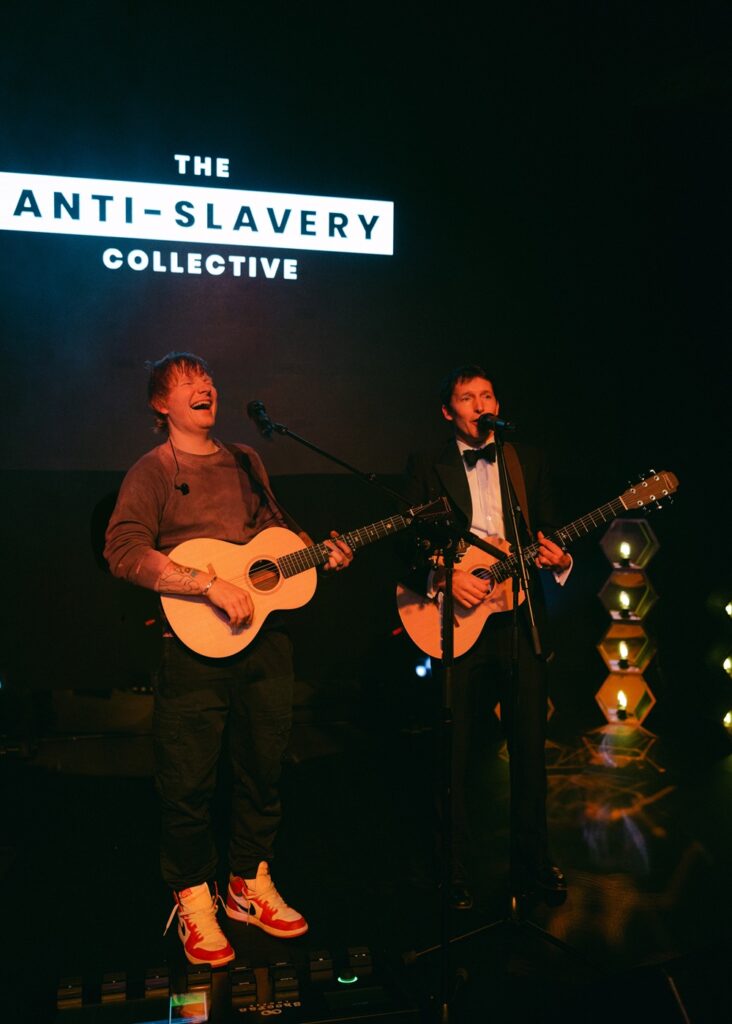
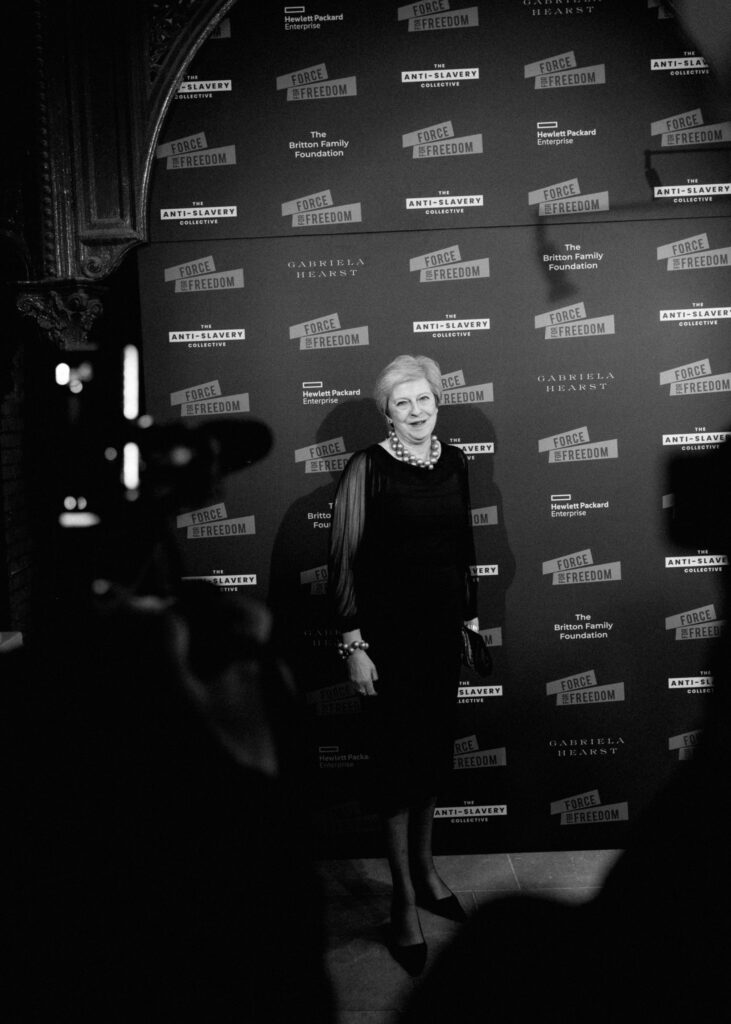
This is most powerful when new audiences are reached, new voices heard and new intelligence shared. To make the most profound impact, my work has led me to film. Storytelling can transcend cultures, languages, political beliefs and religion and, as such, is a powerful unifying force. It stimulates emotional ownership and, if done correctly, change. The films I work with are inherently entertainment-first (whether gripping, dramatic or comedic), yet each has an important message approached in an emphatic, engaging and personal manner. One is about child labour and has support from the likes of Tony Robbins, Vivek Ramaswamy, Sylvester Stallone and Mike Tyson. I am currently working on a couple more: a Holocaust drama about the dangers of propaganda, and a more hopeful female-empowerment piece. Working with such films to effect change is immensely fulfilling. It can encourage the most creative minds to come together, creating masterpieces in the process.
I couldn’t do what I do without working across industries, perspectives and backgrounds, finding mutual goals in the most unexpected places. I continuously learn from those around me, and I hopefully make a difference while doing so. Working with others and absorbing their passions, whatever their background, is most certainly what I love the most.
Written by
Alexandra currently works as Advisor for Partnerships at the World Council of Peoples for the United Nations, having worked for the Council since 2012. Alexandra also works as an independent strategist and film producer, having set up her own impact advisory and production company in June 2023. She is a Rising Leaders Fellow at Aspen Institute UK.

